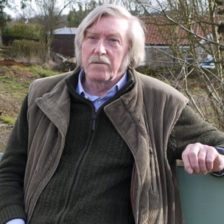This is a transcript of Mike’s speech, which he delivered at the opening of the Kinross-shire “Better Together” campaign.
Address on 27/5/14 to Public Meeting
I have never known a time when an issue (Referendum) has so divided Scotland and cut to the core of its identity.
The SNP play up their ‘positive future’ message of a post-independence ‘land of milk and honey’ with an apparently seamless transition from a 300 year old union, but I am not persuaded. I also reject the notion that I am somehow unpatriotic towards Scotland because I do not share their vision.
It is not necessary to break up Britain in order to tackle Scotland’s economic, environment and social problems. I am a federalist, who campaigned for a Scottish Parliament, noting that the parties represented here tonight not only continue to deliver more devolved power to Holyrood but pledge more. I understand that economic growth in Northern Ireland is currently significant and its people show no desire to leave the UK. I would be more impressed by the SNP if they tried to make devolution work rather than promote separatism as a cure for all ills. I believe passionately in the various nations of the UK staying together, seeing benefit (from the ‘enlightenment’ to the present) for Scotland remaining within it. The Union makes Britain greater but its reform is a continuing necessity, so I have urged my colleagues, if a ‘No’ vote is secured, to have all party discussions on an agreed home rule package for further devolved powers.
By contrast, the SNP Government’s Guide on Scotland’s future, available to all Scottish residents on request, at no cost but funded by British taxpayers’ block grant to Holyrood, poses more questions than it answers? Four spring to mind.
1. I am given to understand that I become a Scottish citizen after a ‘Yes’ vote and can use my current British passport to expiry; the guide is silent on what happens afterwards?
2. Reference is made to the ‘democratic deficit’ of the current UK government led by the Conservatives making decisions for Scotland without popular mandate. It ignores the 13 year rule of the previous UK Labour Government with many Scots MPs in major roles. This concept works both ways, however, for I find the SNP very centrist, controlling and corporate at both national and local level; in particular, planning administration with a local democratic deficit and a seemingly indefinite council tax freeze (9 years by the end of its’ term) virtually imposed on local authorities, with resultant cuts in services; they argue for greater fiscal autonomy but have never used the varying tax powers they currently have under devolution.
3. I support a sterling interchangeable currency zone from the Channel Islands to Scotland but the recent experience in the Eurozone shows us that currency union is fraught with problems, in involving countries of vastly different size and diverse economic and fiscal policy aspirations. It makes sense to keep the pound sterling strong and the best way to ensure we reform the banking system and maintain financial stability is to keep the UK together. This view is supported by credit rating agencies and economists that run counter to assertions made in the Guide. I run an accountancy practice with clients on both sides of the border and do not wish to entertain the prospect of differing financial services regulations that could emerge.
4. Finally, the SNP’s track record on the environment invites scrutiny. As a member of John Muir Trust and Rural Scotland’s Council I have seen at first-hand how hard it is to persuade their Government to protect precious landscapes.
They seem more concerned with land ownership reform but I don’t believe it is necessary to break up Britain to address this. The previous Labour/Liberal Government delivered the radical Land Reform Act that led to successful community buy-outs in the Highlands and Islands.
The UK has 14 national parks of which only two are in Scotland (both created by the previous Government) but their Guide doesn’t even mention the subject; despite the founding father of national parks being a Scot (John Muir) and a campaign presented to Parliament for a National Parks Strategy for Scotland on this ‘Unfinished Business’, they have rejected calls to create new ones, notwithstanding a 2011 Manifesto commitment. The Trust petitioned the Government 3 years ago on wild land designation and the outcome is still awaited, with the Environment Minister not persuaded.
The planning system is skewed in favour of the construction of on-shore wind farms all over Scotland; often approved by Government Reporters against the wishes of communities and elected local authorities. The Government has completely failed to support them in providing guidance on the most appropriate locations for such development, at a significant cost to our hill landscapes.
For these and many other reasons I shall be casting a ‘No’ vote in the Referendum and I hope you will consider doing the same.
Thank you.
Councillor Mike Barnacle
Independent Member for Kinross-shire Ward
On Perth & Kinross Council
